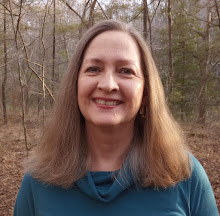Thank you for being here.
Thanks especially to the Yeats Society, Ian Kennedy, and the Summer School, and
to director Geraldine Higgins for the
invitation to read. Thanks to Liber bookstore for stocking my book and to Margaret Raftery for handling sales. I’m delighted that my husband, Don, is here, and it’s
wonderful to see our friends the poet Joan McBreen and her husband, Joe, as
well as Mark Dawson, a poet and a friend of thirty years, all the way back to
graduate school in Alabama. I’m very happy to see friends from previous years
as well.
I first discovered the Yeats International Summer School when my
husband brought a group of students from the University of Alabama on a summer
program to Ireland, and we spent a weekend in Sligo. I was intrigued to learn
about the school, and came back a couple of years later for a whole week. I
guess I got hooked, and in a good way—this is my seventh time at the School!
So it’s a great pleasure to have the opportunity to read from this
brand-new book, Little Wanderer, from Salmon Poetry.
My first book of poems, Bottle Tree, focused
heavily on the American South, while this one ranges across a number of
different countries. This second book, I believe, bears the influence of my
studies in the Yeats School, which has expanded my knowledge of poetry as well
as my vision of what poetry can do and be, as a result of the many fine
lectures I’ve heard and seminars I’ve attended, with Patrick Crotty, Jonathan
Allison, Bernard O’Donahue, Lauren Arrington, Helen Vendler, Lucy McDiarmid,
and, this year, Rand Brandes.
Eudora Welty said that to comprehend one place is to understand
all places better, and I think you could also say that to comprehend one poet,
especially such a poet as Yeats, is to understand all poetry—including one’s
own—better. That’s certainly been true for me.
So, on to my own.
Little Wanderer is made up of four
sections, starting in southern Europe, going east to Romania and the Czech
Republic, working north to England and then Ireland, and finally returning
west, to home, which for me is the southern states of Arkansas and Alabama. I
thought I’d read a sampler of poems, some from each section. These are,
certainly, poems of travel, of adventures and encounters and surprises. I also
hope that they are poems that raise questions of how to be in
the world, of our responses and responsibilities. As an American writer I’m
acutely aware of the influence of the U.S. government on world events, and of
how I move around the world as an American citizen.
But I’ll begin with a more interior poem, the first poem in the
book, “Principles of Flight.”
Principles
of Flight
You
ask what I know about it.
I
gain momentum, am off
and
afloat on currents.
Birds
flip past on jaunty wings.
I
have been practicing
the
etiquette of the traveler,
the
grace of the grateful guest
as
she takes her leave.
Our
backyard garden grows richly,
I
know. Have you seen
the
runway lights,
how
they bud at dusk?
In
the middle of goodbyes,
I
still can see the blue hydrangeas,
full
against the white brick porch
where
flight began.
Here
is the resolution
to
my headstrong departure:
Leaving,
I savor the thought
of
return to our soft bed.
*
I closed with a poem written for my friend Gretchen McCullough
when she was leaving Tuscaloosa to go to the American University in Cairo,
where she still teaches:
A Poem for Leaving
—for
Gretchen
The bright blue sky we woke to
proclaims: good weather for travelers.
Knowing you leave soon,
I search for a charm,
the stone/shell/bone/sign/word
to keep you safe under that other blue sky,
the one you travel to as if
on some magic flying carpet,
strong and wide enough to hold
your two hefty suitcases,
travel bag, light reading,
xeroxed grammar worksheets.
Do you, can you, know
what else you take with you?
We're under your fingernails,
lodged in your throat,
you've got this red dirt
running through your blood.
We know you won't forget us—
it's too late for that, even though
we're not on that massive yellow-pad list.
Take us, take this moment,
find a niche in the suitcase,
pull us out for luck, or comfort,
when you need it.
Travel’s coordinates are distance and time,
little things, really, small matters,
next to love’s bright lines.


No comments:
Post a Comment